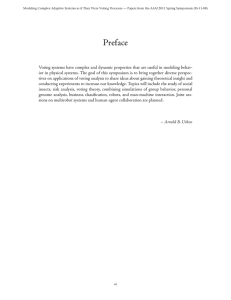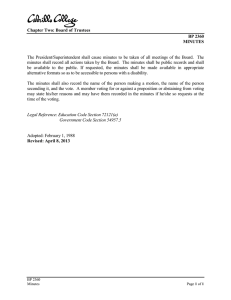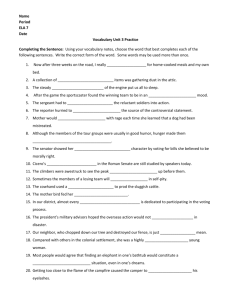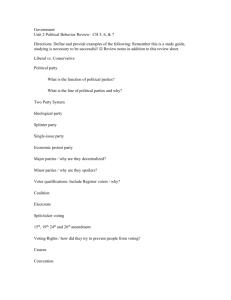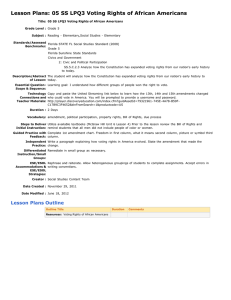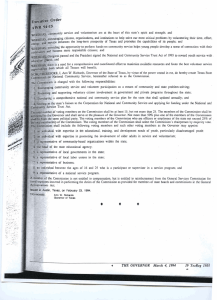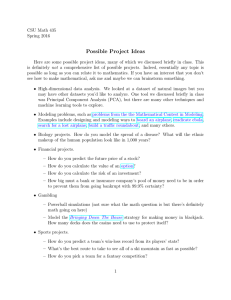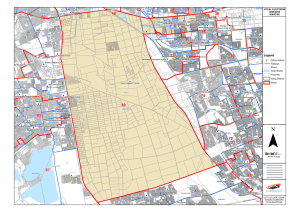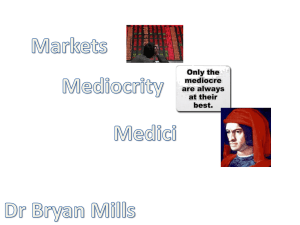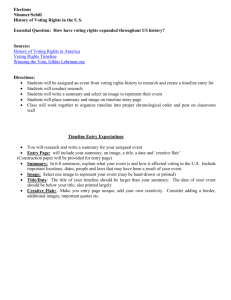Ch. 15- Politics
advertisement
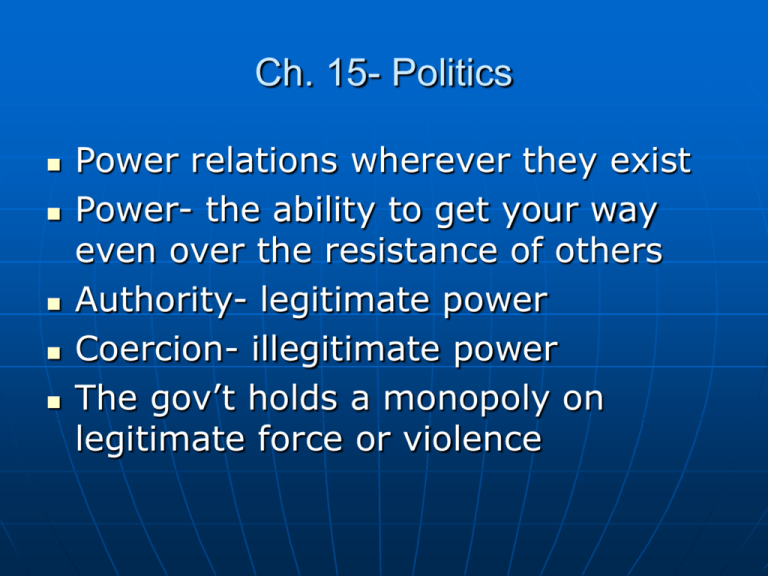
Ch. 15- Politics Power relations wherever they exist Power- the ability to get your way even over the resistance of others Authority- legitimate power Coercion- illegitimate power The gov’t holds a monopoly on legitimate force or violence Revolution- armed resistance w/ the intent to overthrow a gov’t Traditional authority Rational-legal authority Charismatic authority Authority types can overlap Transfer of authority Traditional- know who is next in line Rational-legal- people know how next will be selected Charismatic- no rules of succession Routinization of charisma- transition of authority from a charismatic leader to either a traditional of rational-legal authority Types of government Monarchies Small societies in beginning… grew larger, cities evolved City-states- independent city whose power radiates outward, bringing the adjacent area under its rule Democracies Each U.S. colony was small and independent Colonies united Democracy= power to the people Representative democracy Citizenship was a new idea Dictatorships and oligarchies Dictatorship- power is seized by an individual and he dictates his will onto the people Oligarchy- power is held by a small group of individuals Totalitarianism- almost total control of a people by the gov’t U.S. political system Political parties and elections Democrats- assoc. w/ working class Republicans- assoc. w/ wealthier class Those elected may cross party lines when voting for legislation Both support fundamentals of U.S. political philosophy Democratic systems in Europe U.S. elections= majority wins Europe= proportional representation (seats in legislature divided according to the proportion of votes each political party receives) Encourages minority parties Noncentrist parties- represent marginal ideas Coalition gov’t must form Voting patterns Voting increases w/ age Non Hispanic whites most likely vote Voting increases w/ educ. and income The more people feel they have a stake in the political system, the more likely they are to vote Voter apathy- indifference Special interest groups- people who think alike on an issue and can be mobilized for political action Lobbyists- paid to influence legislation on behalf of their clients Political action committees (PACs)solicit and spend funds for the purpose of influencing legislation Money buys votes Functionalist perspective When functioning well the state is a balanced system that protects its citizens from one another and from the gov’t Pluralism- diffusion of power among many interest groups Checks and balances- separation of powers among 3 branches Conflict perspective Decisions made by power elite, ruling class What matters is problems of businesses and wealthy business owners War Armed conflict between nations or politically distinct groups War is not universal War is common Why war? Social causes? War is expensive U.S. top seller of weapons Dehumanization and war= people as objects
